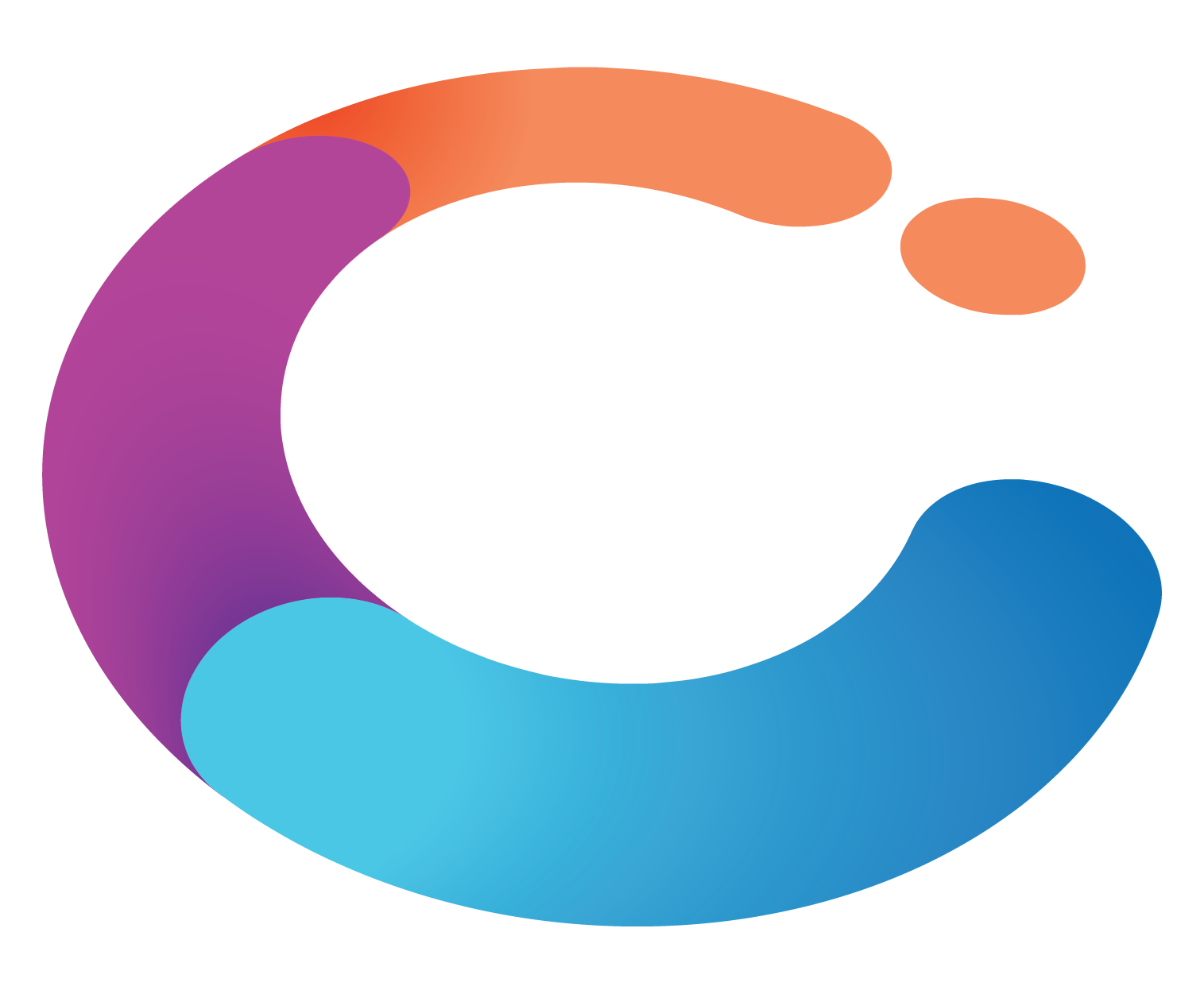Best Practices for Asking Great Interview Questions: Proven Strategies for HR Managers
The article delineates best practices for HR managers in formulating effective interview questions that evaluate both candidate qualifications and...
Engage
|
Hire
|
Develop
|
Assess
|
|
Deeply understand your organisation with science-backed analytics on your culture, team design, and engagement. |
Automatically match to candidates who are a great fit for your team culture and who are intrinsically motivated to succeed. |
Back your onboarding, compliance and skill development with industry-leading credentialling, competency and capability expertise.
|
Reimagine skills assessment and certification with dedicated tools designed to elevate your competency frameworks.
|
.png?width=383&height=200&name=team%20(1).png)
13 min read
 Compono
Apr 2, 2025 11:05:32 AM
Compono
Apr 2, 2025 11:05:32 AM

Effective interview questions are essential for evaluating candidates' qualifications, thought processes, and cultural fit. By focusing on open-ended and situational inquiries, these questions foster meaningful dialogue. Tailored questions not only uncover candidates' skills and experiences but also ensure that the hiring process aligns with organisational values. This alignment ultimately enhances employee engagement and retention, demonstrating the significant benefits of a well-structured interview process.
In today’s job market, the effectiveness of interview questions plays a crucial role in determining hiring success. Thoughtfully crafted questions not only assess a candidate's qualifications but also reveal their problem-solving skills, thought processes, and cultural fit within an organisation. By prioritising open-ended and situational inquiries, interviewers can foster a dynamic dialogue that encourages candidates to showcase their experiences and capabilities.
As the workforce continues to evolve, integrating innovative strategies into the hiring process becomes essential; this ensures that organisations attract and retain talent that aligns with their core values and goals.
This article delves into the importance of effective interview questions, explores various types of inquiries to consider, and outlines best practices for enhancing the overall interview experience.
In today's competitive job market, asking effective interview questions is crucial for determining hiring outcomes. Good interview questions do more than evaluate an individual's qualifications; they reveal thought processes, problem-solving skills, and cultural alignment within the organisation. By prioritising open-ended and situational inquiries, interviewers can formulate questions that encourage applicants to share their experiences and demonstrate their skills in practical contexts.
This method promotes a more engaging dialogue, enabling interviewers to assess not only what applicants have accomplished but also how they think and operate in various scenarios.
For example, instead of asking, 'What are your strengths?', a more impactful inquiry would be, 'Can you describe a challenging situation at work and how you handled it?' Such questions encourage applicants to share specific instances, providing a greater understanding of their abilities and work approach.
This method is especially significant in 2025, where data suggests that 58% of employees feel unmotivated in the workplace, highlighting the necessity for organisations to recruit individuals who resonate with their culture and values. Furthermore, studies indicate that 77% of mid-sized companies regard HR as a strategic role, stressing the importance of effective inquiries in shaping a productive workforce. By incorporating open-ended questions into the interview process, organisations can improve candidate evaluation, leading to better selection choices and ultimately fostering a more engaged and motivated workforce.
This aligns with findings that high employee engagement can decrease absenteeism by 81%, highlighting the tangible benefits of considerate recruitment practices. Additionally, as Compono's innovative HR technology solutions demonstrate, the shift from traditional CV assessments to psychometric evaluations can redefine recruitment strategies, ensuring that organisations not only find the right talent but also enhance team dynamics through a deeper understanding of individual strengths. Compono's seamless integrations further streamline workforce management, making it easier for HR managers to implement effective recruitment practices.
The rapidly changing work landscape demands aligned and productive teams, making it essential for companies to adopt modern recruitment practices that reflect these needs.

Interview questions can be categorised into several distinct types, each designed to serve a specific purpose in the hiring process, particularly when leveraging Compono's innovative HR solutions:
Behavioural Questions: These inquiries focus on an applicant's past experiences to predict future behaviour. For instance, asking, 'Tell me about a time you faced a conflict at work and how you resolved it,' allows interviewers to assess problem-solving abilities and interpersonal skills. Research indicates that 71% of companies offer inclusive and constructive feedback to applicants, highlighting the importance of effective communication during interviews. Additionally, utilising Work Personality assessments can enhance understanding of team dynamics, enabling individuals to appreciate each other's unique strengths and fostering collaboration. This aligns with Compono's commitment to mapping culture and engagement through science-backed insights.
Situational Questions: These hypothetical scenarios gauge how candidates might handle future challenges. An example could be, 'How would you approach a project with a tight deadline and limited resources?' Such questions assess critical thinking and adaptability, essential traits in dynamic work environments. A recent study involving students at a Dutch university explored the relationship between situational assessment performance and job simulation performance, underscoring the relevance of situational evaluations in predicting real-world job success.
Technical Questions: For positions requiring specific expertise, technical questions assess an applicant's proficiency in relevant skills. For example, asking, 'What programming languages are you proficient in, and can you provide examples of projects you've completed using them?' helps ascertain if the individual possesses the necessary technical capabilities to succeed in the role.
Cultural Fit Questions: These inquiries evaluate whether an applicant aligns with the company's core values and culture. A question like, 'What type of work environment do you thrive in?' helps ensure that new hires will integrate well into the existing team dynamics. According to a survey, 65% of applicants consider employee testimonials and reviews as influential factors when evaluating a company, emphasising the significance of cultural alignment in attracting top talent. Joanna Plohl, Group HR Manager, remarked, "This allows us to explore outside our sector to discover quality individuals who possess transferable skills and integrate well," highlighting the importance of considering cultural alignment in recruitment choices.
By utilising a blend of behavioural, situational, technical, and cultural fit inquiries as effective interview questions, HR professionals can develop a thorough selection strategy that not only recognises qualified individuals but also promotes a more inclusive and effective recruitment process. It is vital to recognise that individuals with Black names encounter a 2.1% lower likelihood of receiving an opportunity, highlighting the significance of unbiased hiring methods.
Successful interviewing begins well before the applicant enters the room. Thorough research on both the applicant and the role is essential for a fruitful interview. Here are some best practices to enhance your interviewing process:
Review the Candidate's Background: Analyse the candidate's resume, LinkedIn profile, and any other available information to gain insights into their career trajectory, skills, and experiences. This preparation enables you to formulate good questions that delve deeper into their qualifications and motivations.
Understand the Role Requirements: Familiarise yourself with the job description and the specific skills and competencies required for the position. Research indicates that a clear understanding of role requirements significantly increases the likelihood of interview success. This knowledge will assist you in crafting good questions that evaluate whether the applicant possesses the required qualifications and matches the role's expectations.
Research Company Culture: Understanding your organisation's culture is crucial for assessing an applicant's fit. For instance, if your company values collaboration, good questions might include asking, 'Can you describe a time when you worked as part of a team to achieve a goal?' This approach not only evaluates skills but also helps in forming good questions to gauge alignment with your company's values.
Prepare Good Questions for Interview: Based on your research, prepare questions that can help clarify any ambiguities in the candidate's responses. This demonstrates your engagement and interest in their experiences, fostering a more meaningful dialogue.
Leverage Recruitment Metrics: Utilise recruitment metrics to empower your decision-making process. These metrics can provide insights into the effectiveness of your recruitment strategies, helping you refine your approach over time. As noted, recruiting metrics enable HR professionals to make smarter, data-driven decisions in the employment process.
Consider Social Media Presence: With 21% of recruitment authorities less inclined to consider applicants lacking a social media presence, it's important to evaluate how individuals present themselves online. This can provide additional context about their professional persona and engagement in their field.
Adapt to Evolving Recruitment Dynamics: The recruitment landscape has changed, with applicants now having more influence over hiring processes. Companies are adjusting their recruitment strategies to meet these new expectations, emphasising the importance of employer branding and applicant experience. As Joanna Plohl, Group HR Manager, states, "This enables us to look beyond our industry to find quality individuals who possess transferable skills and fit right in."
Incorporate Personality Assessments: Leverage tools like Compono's Work Personality assessments to gain deeper insights into individuals' personalities and how they can contribute to team dynamics. Understanding individual strengths can enhance collaboration and ensure a better fit within your organisation.
Redefine Recruitment with Psychometrics: As the employment landscape shifts from traditional CVs to psychometric evaluations, consider integrating these assessments into your recruitment process. This approach not only helps in strategic job matching but also aligns with modern workforce management strategies, ensuring that you select candidates who are not only qualified but also a cultural fit for your organisation.
By implementing these best practices, HR professionals can enhance their interviewing techniques, leading to better hiring decisions and improved organisational alignment.

Creating inquiries that align with your company's culture is crucial for ensuring that new employees assimilate smoothly into the team. To achieve this, consider the following effective strategies:
Identify Core Values: Begin by clearly defining your organisation's core values. What qualities do you prioritise in your employees? These values should serve as the foundation for your interview questions, guiding the selection of individuals who resonate with your mission.
Ask Value-Based Inquiries: Formulate questions that directly relate to your core values. For instance, if teamwork is a core value, a pertinent question might be, 'Can you provide an example of how you contributed to a team project in your previous role?' This approach not only evaluates skills but also includes inquiries that demonstrate the individual's alignment with your organisational ethos.
Evaluate Cultural Fit: Incorporate questions that assess how well applicants align with your company's culture. For example, asking, 'What type of work environment do you find most motivating?' can help gauge whether the applicant will thrive within your organisation. This is particularly crucial as 65% of applicants consider employee testimonials and reviews influential when evaluating potential employers, underscoring the importance of cultural fit in the interview process. Best practice: Ask these questions even before you get to reviewing and shortlisting candidates!
Utilise Tools: Utilising tools like Compono's Work Personality assessments can further enhance this evaluation by providing insights into how individuals' personalities align with team dynamics.
Encourage Authenticity: Foster an environment where candidates feel comfortable sharing their true selves. Asking questions such as 'What motivates you to do your best work?' can yield valuable insights into their personal values and work ethic. This authenticity is vital, especially in a rapidly changing work landscape where aligned and productive teams are essential for success. Compono's innovative HR solutions can help map these dynamics effectively.
Leverage Statistics: Recognise the impact of value-based questions on employment outcomes. Research indicates that companies aligning their interview processes with core values experience improved retention rates and employee satisfaction. In fact, top-notch applicants often secure new roles within merely ten days, highlighting the necessity for efficient and effective recruitment practices. By incorporating personality evaluations into your hiring approach, you can further improve the match between applicants and your organisational culture.
By applying these strategies, HR managers can enhance their assessment processes, ensuring that they not only select candidates with the right skills but also those who embody the core values and culture of the organisation. This alignment is crucial for building high-performing teams that drive business success.

While thorough preparation is crucial, maintaining flexibility during interviews can significantly elevate the quality of the conversation. Here are some strategies for adapting questions in real-time, particularly through the lens of Compono's integrated HR technology solutions:
Listen Actively: Engage deeply with applicants' responses. Active listening enhances emotional appraisal and activates the ventral striatum/thalamus, which is associated with reward processing. This allows you to identify areas for further exploration or clarification, creating a rewarding interaction that fosters positivity.
Be Ready to Pivot: If an applicant shares an unexpected or particularly insightful answer, adjust your questioning approach accordingly. For example, if they recount a unique experience, encourage them to elaborate, leading to richer insights.
Encourage Dialogue: Foster a conversational atmosphere where individuals feel at ease sharing their thoughts. This openness can facilitate organic discussions, revealing valuable insights about their fit for the role.
Use Follow-Up Questions: Don’t hesitate to ask follow-up questions based on candidates' responses. This demonstrates your involvement and curiosity about their experiences, leading to a more significant discussion.
Flexibility in Questioning: Flexibility in your questioning can significantly impact the quality of the interview. For instance, if an applicant mentions a pertinent skill or experience, adjust your inquiries to delve deeper into that aspect. This adaptability enriches the conversation and helps you evaluate the individual's capabilities more effectively.
Expert Insights: According to industry specialists, the ability to adjust inquiries in real-time is crucial for revealing deeper insights about candidates. This method improves the interview experience and aligns with the objective of making informed employment decisions. As one focus group participant noted, "There’s a lot of questions to answer…and I don't even answer it anymore. It is like they want to tick the box, but they don't care what I have to say."
By incorporating these strategies, HR professionals can create a more dynamic and effective selection process, ultimately leading to better hiring outcomes. Moreover, adhering to organised assessment procedures can further improve the effectiveness of these strategies, ensuring a thorough approach to applicant evaluation.

To carry out effective discussions, it is crucial to be aware of common mistakes that can undermine the process. Here are some pitfalls to avoid:
Inquiring with Direction: Leading inquiries can influence applicants' answers, possibly distorting the interview outcomes. For instance, instead of asking, 'You enjoyed your last job, didn't you?', choose a neutral inquiry such as, 'What did you enjoy most about your last job?' This approach encourages individuals to share their genuine experiences without feeling influenced. Utilising Compono's science-supported insights can assist you in crafting good questions for interviews that provoke genuine responses.
Neglecting to Hear: Interviewers who focus too much on their prepared inquiries may miss important perspectives from applicants. Active listening is essential; it allows you to fully grasp their responses and engage in a more meaningful dialogue. Use automated systems to aid in capturing essential points during discussions, ensuring that you concentrate on the applicant's input.
Relying on Generic Inquiries: Generic inquiries often fail to yield meaningful insights. Customising your inquiries to the specific role and candidate can lead to good questions for interviews that elicit more relevant information, enhancing the overall quality. For example, instead of asking, 'What are your strengths?', consider asking, 'Can you describe a situation where your strengths contributed to a successful project?' Compono's personality evaluations can offer valuable context for creating these customised inquiries.
Neglecting to Ask About Cultural Fit: Failing to assess cultural fit can result in poor recruitment decisions. Incorporate good questions for interviews that assess how well individuals align with your organisation's values and culture. For instance, asking, 'Can you share an example of how you contributed to a positive team environment in your previous role?' can provide insights into their compatibility with your team. Compono's organised recruitment procedure highlights the significance of cultural fit, assisting you in recognising individuals who will excel in your organisation.
Statistics reveal that 33% of employers make a decision about an applicant within the first 15 minutes of an interview, underscoring the importance of effective questioning from the outset. Moreover, many organisations still rely on outdated models and subjective biases in their recruitment processes, which can lead to misalignment and disengagement within teams.
By integrating science and strategy into HR practices through Compono's all-in-one workforce management, companies can make better people decisions and foster a more productive work environment.
The challenges organisations encounter in the present work environment highlight the necessity for improved recruitment strategies. Avoiding these common mistakes not only enhances the interview process but also contributes to building a stronger, more aligned team.
To enhance your interviewing skills, consider implementing the following best practices:
Develop Good Questions for Interview: Focus on open-ended, situational, and behavioural prompts that encourage applicants to share their experiences. Research indicates that asking effective questions, particularly open-ended ones, significantly enhances the quality of responses, allowing candidates to showcase their thought processes and problem-solving abilities. This aligns with Compono's emphasis on utilising personality evaluations to match individuals with positions that suit their strengths.
Research Thoroughly: Prepare by investigating applicants and gaining a clear understanding of the role requirements. Tailoring your inquiries to include effective questions that focus on specific skills and experiences relevant to the position can lead to more insightful discussions and improved assessments of fit. Compono's integrated HR solutions facilitate this process by efficiently gathering information, ensuring a comprehensive understanding of each applicant.
Align with Company Culture: Ensure your inquiries reflect your organisation's core values and assess cultural fit. A strong alignment between individual values and company culture enhances employee engagement and retention, as individuals who resonate with the culture are more likely to thrive. Compono's technology supports this alignment by providing insights into team dynamics and individual strengths.
Consider the following effective questions for interview. Stay flexible by being prepared to adapt your questions based on the flow of conversation and the responses of the candidates. This flexibility can lead to deeper insights and a more authentic dialogue, allowing individuals to express themselves more freely. Compono encourages this approach to create a supportive interview environment that enhances applicant performance.
By implementing these best practices, HR professionals can enhance their interviewing techniques, leading to better hiring outcomes and improved employee engagement. Additionally, live technical assessments conducted during evaluations can inadvertently increase stress and cognitive load, reducing performance by 50%. Therefore, it is crucial to create a balanced assessment environment that enables candidates to perform at their best.
Given that many mid-sized companies lack integrated HR systems and clarity on people and culture, these practices are essential for improving hiring outcomes and aligning talent with business strategy.
Interview Process Overview: The selection procedure at Compono generally involves a phone screen with the People team, followed by an initial meeting with the Direct Hiring Manager and another relevant team member. Depending on the position, applicants may also undergo technical and psychometric assessments prior to the second interview, which involves a Tech/Team Lead and a Senior Team Member. An offer is contingent upon a police check and two reference checks.
This structured approach ensures a thorough evaluation of candidates while aligning with the company's commitment to effective workforce management.

In the ever-evolving job market, the significance of crafting effective interview questions is paramount. Thoughtfully designed inquiries not only evaluate a candidate's qualifications but also provide insights into their problem-solving skills and cultural fit within an organisation. By emphasising open-ended and situational questions, interviewers can foster a dynamic dialogue, uncovering deeper insights into a candidate's experiences and capabilities. This approach is essential for creating a workforce that aligns with organisational values and enhances overall employee engagement.
Incorporating a diverse range of question types—behavioural, situational, technical, and cultural fit—ensures a comprehensive evaluation process. Understanding the role requirements, researching candidates thoroughly, and aligning questions with core values significantly enhances interviewing strategies for HR professionals. Avoiding common pitfalls such as leading questions and failing to listen actively can lead to more meaningful interactions and informed hiring decisions.
Ultimately, integrating innovative HR solutions, like those offered by Compono, can streamline the hiring process and support organisations in making better people decisions. By embracing these best practices, companies not only improve their chances of hiring the right talent but also cultivate a motivated and engaged workforce ready to thrive in today's competitive landscape. Prioritising effective interview practices is not merely a strategic advantage; it is a commitment to building teams that drive success and innovation.
Why are effective interview questions important in the hiring process?
Effective interview questions are crucial, as they help determine hiring outcomes by revealing candidates' thought processes, problem-solving skills, and cultural alignment with the organisation, beyond just evaluating qualifications.
What types of interview questions are recommended for better candidate evaluation?
Recommended types include: 1. Behavioural Questions: Focus on past experiences to predict future behaviour. 2. Situational Questions: Present hypothetical scenarios to assess how candidates might handle future challenges. 3. Technical Questions: Evaluate specific expertise and skills relevant to the job. 4. Cultural Fit Questions: Determine if candidates align with the company's core values and culture.
Can you provide an example of a behavioural question?
An example of a behavioural question is, 'Tell me about a time you faced a conflict at work and how you resolved it.' This helps assess problem-solving abilities and interpersonal skills.
What is the purpose of situational questions in interviews?
Situational questions gauge how candidates might handle future challenges, assessing critical thinking and adaptability. An example is, 'How would you approach a project with a tight deadline and limited resources?'
How do technical questions contribute to the interview process?
Technical questions assess an applicant's proficiency in relevant skills necessary for the role. For instance, asking about specific programming languages and related projects helps determine if the candidate has the required expertise.
Why is cultural fit important in the hiring process?
Cultural fit is important because it ensures new hires will integrate well into the existing team dynamics. Questions like, 'What type of work environment do you thrive in?' help evaluate this alignment.
How can Compono's HR solutions enhance the interview process?
Compono's HR solutions enhance the interview process by integrating structured hiring practices, including assessments that match applicants to roles, and by providing insights that improve understanding of team dynamics and cultural fit.
What impact does employee engagement have on the workplace?
High employee engagement can significantly reduce absenteeism by 81%, highlighting the benefits of thoughtful recruitment practices that foster an engaged and motivated workforce.
How does the hiring landscape in 2025 affect recruitment practices?
In 2025, with 58% of employees feeling unmotivated, it is essential for organisations to recruit individuals who resonate with their culture and values, necessitating modern recruitment practices that reflect these needs.

The article delineates best practices for HR managers in formulating effective interview questions that evaluate both candidate qualifications and...

The article emphasizes best practices for crafting effective interview questions, highlighting their critical role in assessing candidates'...

Overview The article outlines best practices for interview questionnaires and answers, highlighting the significance of structured approaches to...

Overview The article focuses on best practices for HR managers in formulating effective interview questions to enhance the recruitment process. It...

Overview The article examines how to effectively respond to the top 10 interview questions to improve a candidate's chances of success. It...

Overview The article serves as a comprehensive guide to the most prevalent interview questions and effective strategies for addressing them. It...